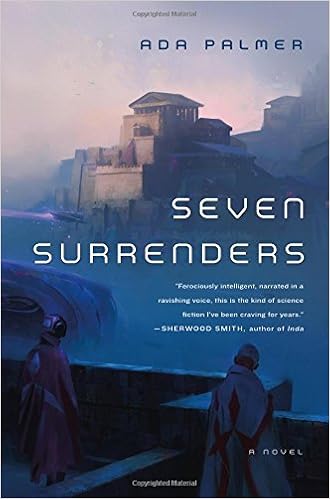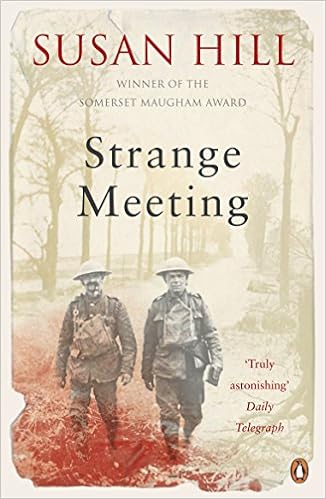Gender they called a universal language which we’re all supposed to pretend we can’t read. Most just play blind or try (as we know we ought) to eliminate the traces of it, and the ancient inequalities those traces threaten to revive. But, they said, cunning folk can use that language to attack targets with body rhetoric we can’t acknowledge, let alone resist. [p. 22]
This review necessarily contains spoilers for the preceding volume,
Too Like the Lightning: both books form a single narrative spanning seven days, and I'm very glad I was able to read the whole of that narrative at once, rather than waiting for the second volume to appear. (Now I am extraordinarily eager to read the third,
Will to Battle, out on December 19th.)
A quick recap: it is 2454, a peaceful world which perhaps imagines it's a utopia (no disease, no war, little crime, 20-hour work week, rapid transit et cetera). Religion and gender are now treated on a 'Don't Ask, Don't Tell' basis (sexuality seems mostly to be regarded as irrelevant, and I don't think it's an accident that a good deal of Mycroft's (mis)gendering relies on parental rather than sexual archetypes: maternal caring and ferocious protection, paternal authority).
Spoilers start here:
Parenthood, seldom examined in
Too Like the Lightning -- the 'bash' model, in which groups of friends rather than nuclear families form the household unit, seems likely to diminish the importance of the parent-child relationship -- becomes more important in
Seven Surrenders. On the one hand there's Bridger, a child who can perform miracles such as animating toys and drawings, and who seems to have self-generated: he has no belly-button and appears to have nursed himself by sucking his thumb. On the other hand, there's J.E.D.D. Mason, known to Mycroft as Jehovah, who may be a god (albeit the god of another universe) but whose powers are merely those that a very talented human might acquire. Jehovah's parentage is a major plot element in this second novel, as is his nature: plenty of theology here, as a divine child and a disempowered god ask questions about the purpose of one another's existence, and how each relates to the other.
One might also ask how exposure to these individuals (and indeed to the self-styled 'witch' Thisbe) might have affected our narrator Mycroft Canner, self-described 'orphan, parricide, traitor, wanderer, fool'. Mycroft was revealed as a monster, a serial killer with a taste for torture and cannibalism, in the first volume: here we see them through other eyes. "... the beast I call True Mycroft pokes its nose above the surface. It’s not a prisoner in there, not fighting to break free, just resting inside Slave Mycroft like a ship in harbor" (p. 14). We learn more, too, about the reason(s) for Mycroft's two weeks of slaughter. And much more about the O.S. and the ways in which the world has been changed by their actions.
The climax of the novel (of the duology?) is hammer-blow after hammer-blow: a character is assassinated; the assassin is not who they appear to be (but who is pulling the strings?); the victim, miraculously, is saved; the saviour ... makes a choice, and introduces a new character -- or rather renames an existing one, though not in the same way as at the end of the first volume, and not in a way that I felt was entirely foreshadowed, though other characters seemed to feel that all the clues were there.
Right at the beginning of
Too Like the Lightning, Mycroft defends (but does not explain) his decision to write this account in the style of the eighteenth century. In
Seven Surrenders the reason for that choice becomes apparent. "I love the Eighteenth Century... that great moment when humanity realized experiments didn’t just have to be done with sciences, they could be done with morals and religion, too." [p. 336] Several of the characters in these novels could be said to be running experiments: I wonder if others (and not just the obvious ones) are the unwitting experimental subjects. And I find myself caring about them, liking them, and wondering about them: Mycroft's childhood, Sniper's sex and sexuality, Papa's relationship with his most infamous quarry. ('Papa' is short for 'Papadelias', the Police Commissioner's surname: but see above under 'absent parents'.)
Seven Surrenders ends in a dark place. I fear the third volume,
Will to Battle, will be at once darker and more illuminating. Is it December the 19th yet?






